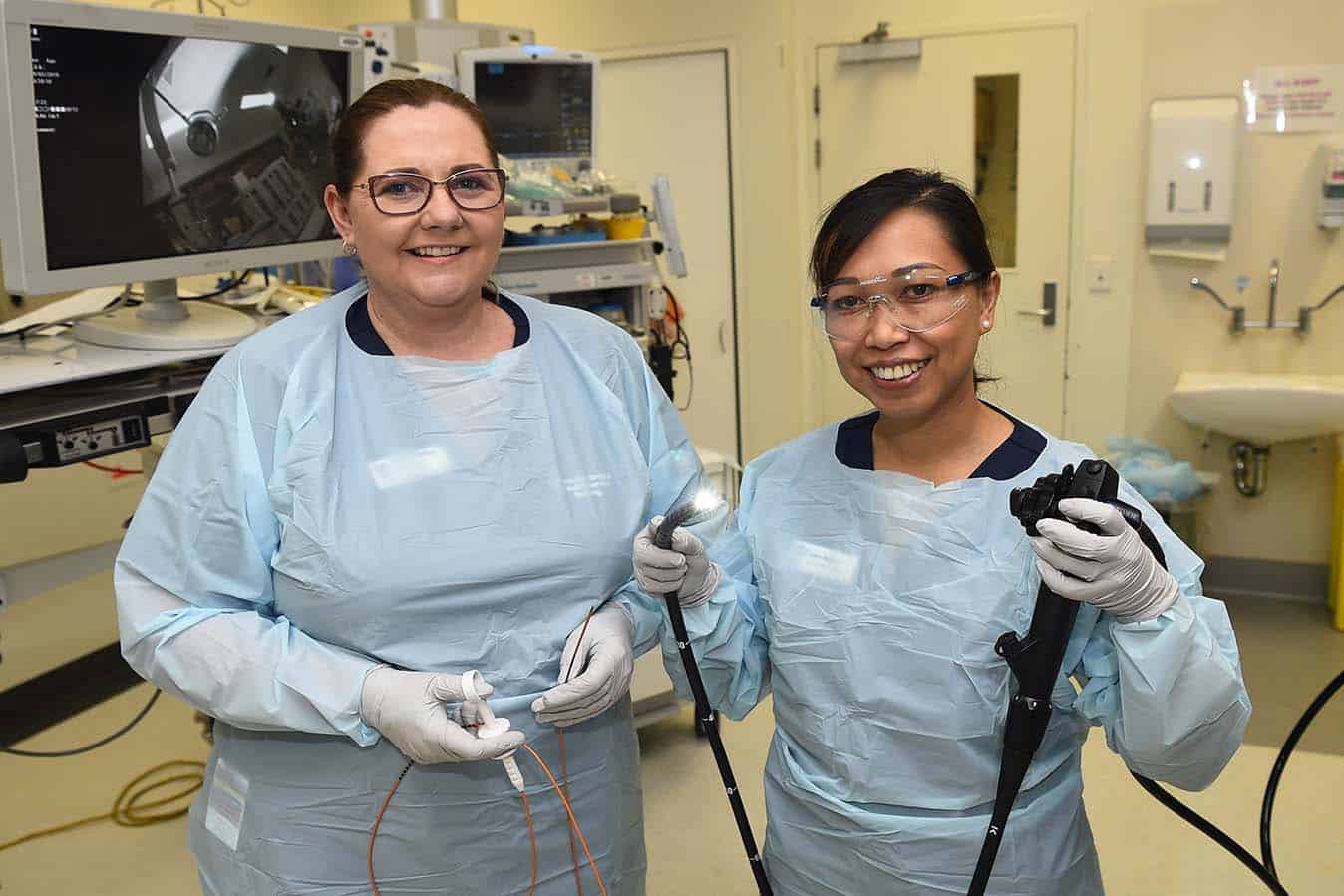The Nurse Practitioner Endoscopist (NPE) is an advanced practice role enabling the Nurse Practitioner (NP) to perform colonoscopy procedures within a legislative and regulatory framework applied in Australia.
The NPE model was implemented at the Townsville Hospital in 2015 with two NPEs, Kylie and Grace, credentialed to perform colonoscopies in March 2018.
Colonoscopy is a procedure used to inspect the large bowel for abnormalities and disease and it is particularly important for early detection and prevention of bowel cancer.
It is well established that sedation enables colonoscopy to be better tolerated by patients (Triantafillidis et al. 2013) and improves endoscopists’ performance (Amornyotin 2013).
An important component of the NPE’s role at Townsville Hospital was to be able to provide care that was equitable to a doctor providing colonoscopy procedures.
Therefore, a unique challenge to introducing NP Endoscopy to Townsville Hospital was adopting the current routine practice of traditional endoscopist-administered procedural sedation and analgesia (PSA), a model using fentanyl and midazolam.
The practice of NPE sedation concurrently for colonoscopies had not previously been established in Australia with all other NP Endoscopy sites having anaesthetic led sedation for procedures.
The safety of medical endoscopists performing colonoscopies concurrently administering PSA to patients with low anaesthesia risk – American Society of Anaesthesia (ASA) class I and II has been well established worldwide.
In Australia, the policy for sedation is the PS09 (ANCZA 2014) document titled “Guidelines on Sedation and/or Analgaesia for Diagnostic and Interventional Medical, Dental or Surgical Procedures”.
This follows recommendations by the Australian and New Zealand College of Anaesthetists (ANCZA), however, does not cover nurse-administered sedation.
Therefore, the governance allowing NPEs at Townsville Hospital to administer PSA was addressed by a collaborative, multidisciplinary-developed hospital procedure.
This procedure provided the training requirements and guidelines to govern safe procedural sedation for the NPEs at Townsville Hospital.
The core component of the sedation procedure is that the NPEs have the skills to administer PSA safely and effectively as well as the ability to be able to rescue the patient from deeper than targeted levels of sedation.
Both NPEs were credentialed by the hospital to provide NPE led PSA in June 2018 and to date have performed over 600 colonoscopies independently with no sedation complications.
It is important for NPEs performing colonoscopies and administering PSA to have an in-depth understanding of the issues involved in this role expansion beyond the traditional boundaries of nursing practice.
Kylie and Grace are currently involved in a research study to evaluate the NPE service with the focus on the safety and acceptability of NPEs performing colonoscopies and providing PSA.








